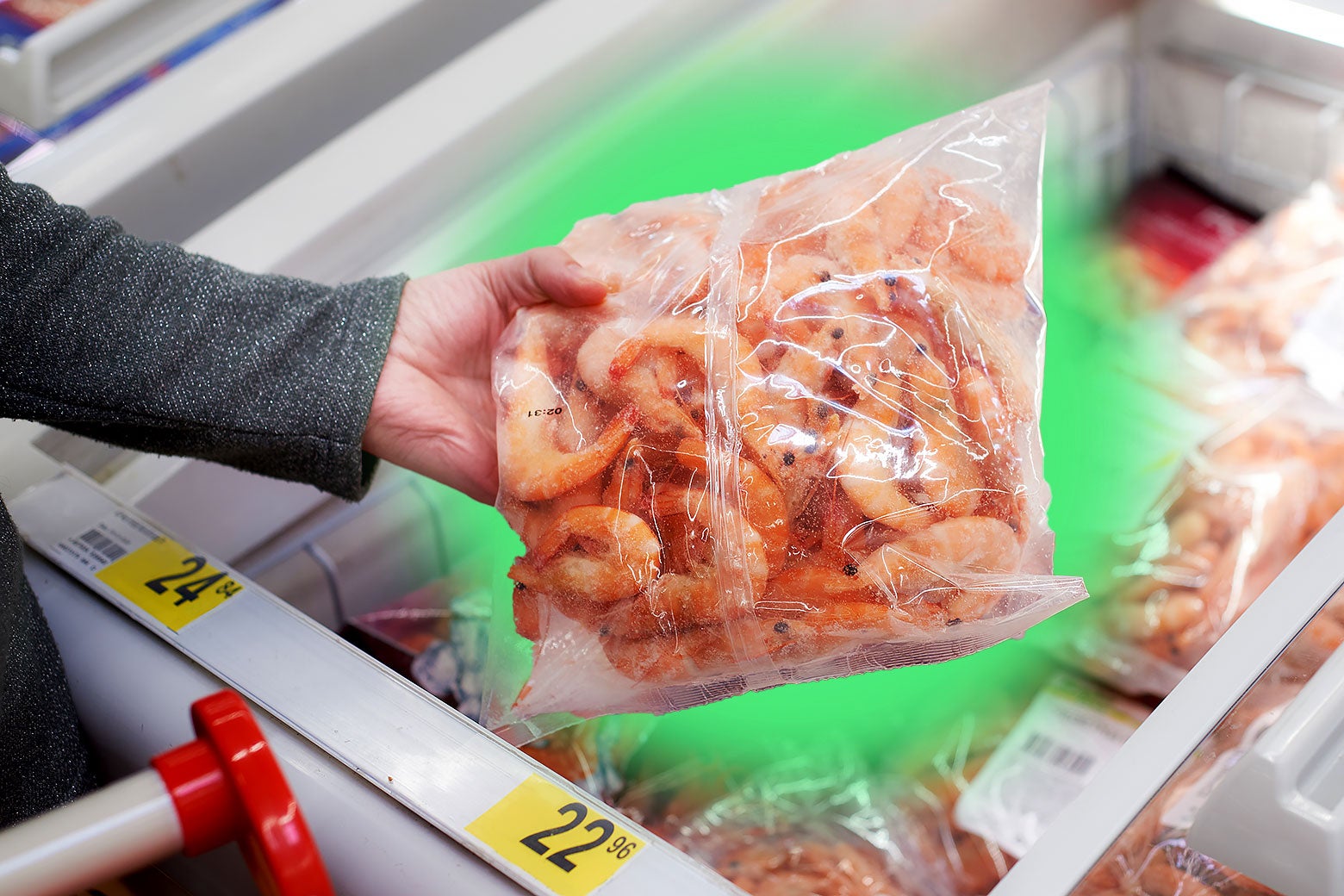
"U.S. authorities detected the substance in shipping containers coming from Indonesia at four ports of entry (Los Angeles, Houston, Miami, and Savannah). Further testing revealed a small amount of the Cesium-137, or Cs-137, actually in one sample of breaded shrimp (at which port, they didn't say). The discovery was enough for the FDA to recommend that Walmart stores stop selling specific Great Value shrimp products, and to block imports from the company distributing the product until an investigation is complete."
"Further, the amount of Cs-137 detected in the one batch of breaded shrimp was really quite low. The FDA's " Derived Intervention Level " -the point at which scientists have determined that protective measures need to be put in place-for Cs-137 is 1,200 becquerels per kilogram (becquerels are a unit of radioactivity). The prawns measured in at approximately 68 becquerels per kilogram. "At this level, the product would not pose an acute hazard to consumers," the FDA wrote in their announcement."
Authorities detected Cesium-137 in shipping containers of imported shrimp from Indonesia at four U.S. ports. Testing found a small amount of Cs-137 in one breaded shrimp sample, prompting the FDA to advise Walmart to stop selling specific Great Value shrimp products and to block imports from the distributor while an investigation proceeds. The detected level measured about 68 becquerels per kilogram, well below the FDA's Derived Intervention Level of 1,200 becquerels per kilogram, and is not considered an acute hazard to consumers. No contaminated product is known to have reached store shelves.
Read at Slate Magazine
Unable to calculate read time
Collection
[
|
...
]